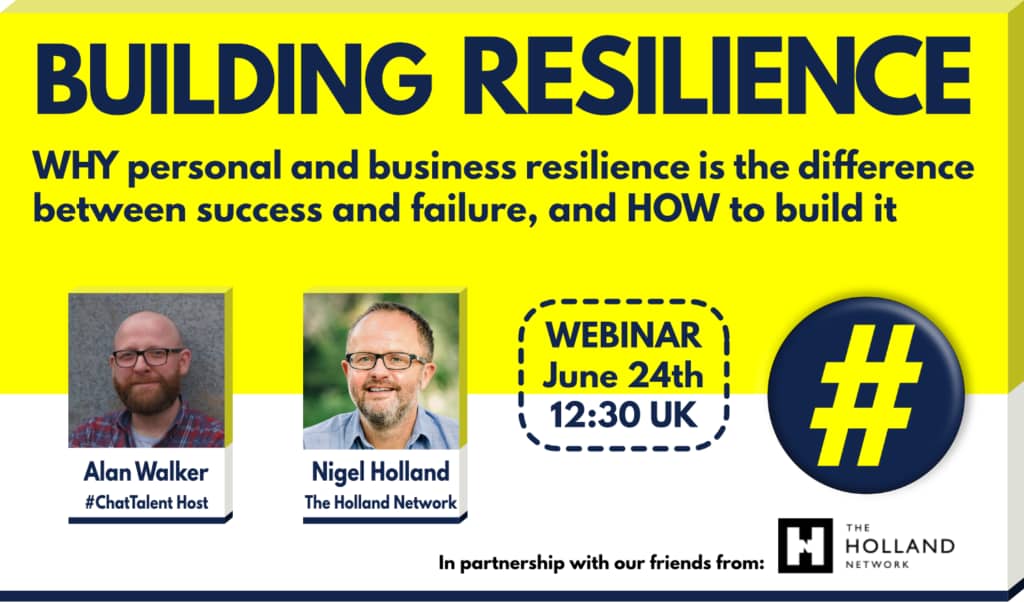Resilience has become a personal and business imperative. So knowing what resilience is and – more importantly – how you can raise it, is fundamental.
Luckily, for this just over 30min webinar, I was joined by the amazing Nigel Holland, Director and founder of The Holland Network who knows a lot about this stuff.
Nigel kicked us off by sharing on his screen the definition of resilience. He explained that while everybody has a natural level of resilience, it is also genetic and based on personal experience.
But why is it important? Why should resilience be at the top of our list?
Resilience and stress are, unsurprisingly intrinsically linked. The dictionary defines stress as the perception of being unable to meet demand and the sense of being unable to cope.
“The higher the stress the more resilient you need to be. So, to be able to manage our stress we need to focus on building long term resilience.”
But how do we do this? What can we do to build long term resilience?
Enter Nigel Holland’s 6 foundation model. Where the first building block is purpose.
How are you setting goals around that and where are you spending your time and energy? Is it on the important stuff? Or are you sweating the small stuff?
“It sounds obvious, but purpose fuels determination, persistence and hope. Resilient leaders have purpose which guides their choices. So regardless of what the external world throws at them, they always act in the same way.”
Nigel then covers the importance of acceptance and adaptability. Which are usually associated with resilience.
Do you prioritise new ideas and innovation? Or do you always look at what could go wrong? Are you proactively looking for opportunities?
“Think when was the last time you voluntarily went outside your comfort zone.”
Finally, we covered the last pillars, belief and focus. Arguably the most important. The ability to recognise we all have the ability to deal with adversity and life challenges.
“You have a personal resilient model to deal with difficult times. Remind yourself of your skills, of your capability. Of the support that you have and the relationships that you have built.”
Recall times when you have overcome adversity in the past, do you stand up for your rights or are you at the mercy of other people.
“Stress often comes from either the past or worrying about the future. But, of course, the truth is that we have no control over that.”
Concussing the webinar with a few episodes from the audience, I asked how we work out what is important and how to take time for yourself to be mindful.






